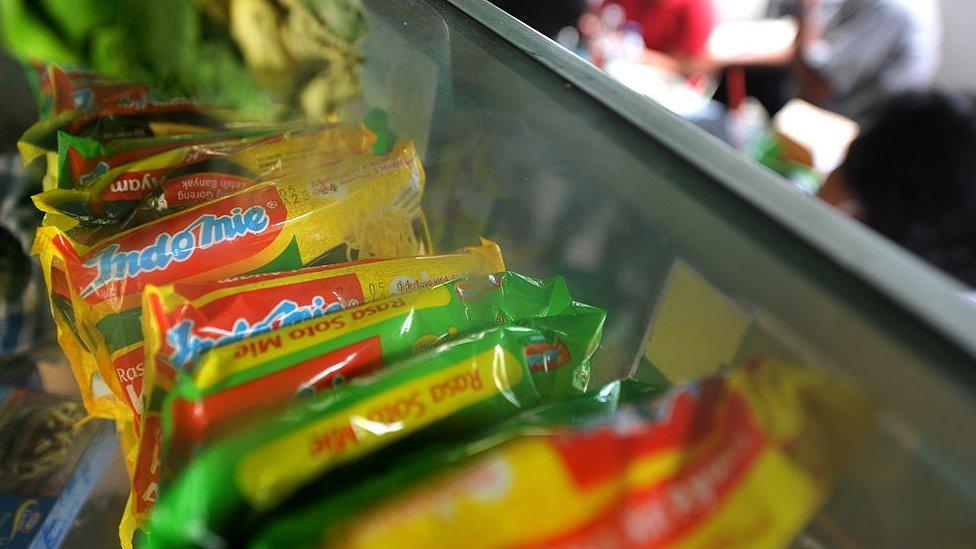Indomie: Creator of cult favourite 'mi goreng' instant noodle dies
- Published

Indomie has become a cult favourite across the world
The woman behind instant noodle giant Indomie's iconic "mi goreng" flavour has passed away at the age of 59.
Tributes poured out for Nunuk Nuraini, who worked as a flavour development manager at the cult favourite Indonesian brand for nearly 30 years.
Many thanked her for her "legacy", one calling her a "non-cape wearing hero".
Indomie has become almost synonymous with instant noodles in Indonesia, where many have grown up eating the popular brand.
But it has in recent years also become a global hit, finding popularity not just across South East Asia but also Australia and Nigeria.
However, even though the brand now offers dozens of flavours, its "mi goreng" or fried noodle flavour, has consistently remained its most popular.
Allow X content?
This article contains content provided by X. We ask for your permission before anything is loaded, as they may be using cookies and other technologies. You may want to read X’s cookie policy, external and privacy policy, external before accepting. To view this content choose ‘accept and continue’.

One social media user called her the "Mother of Indomie", adding that she created the "most beautiful work".
Others posted pictures of their own Indomie creations online. This caption in Indonesian reads: "My mainstay menu, fried egg, meatball and Indomie. Thank you Nunuk, you are a hero in our hearts."
Allow X content?
This article contains content provided by X. We ask for your permission before anything is loaded, as they may be using cookies and other technologies. You may want to read X’s cookie policy, external and privacy policy, external before accepting. To view this content choose ‘accept and continue’.

According to local news outlets quoting Indofood - the company which owns the noodle brand - Nuraini passed away on Wednesday afternoon.
The reason behind her death was not clear, though a spokesman said she had "returned peacefully to Allah".

A Southeast Asian icon
Yvette Tan, BBC News Singapore
Mi goreng - two words that everyone in Singapore, Malaysia and Indonesia is well acquainted with.
Literally translated, it means fried noodles which is a common dish across the region - but Indomie's iteration of it is widely loved.
At $2 a packet in Singapore, it's cheap, convenient, and most importantly - delicious as sin. The recipe is perfectly simple - bouncy noodles, a dark sweet soy sauce, flavoured oil and fried shallots. But it works - and how.
It's fair to say Indomie has a special place in all our hearts - it's what your mum would make for you if she was particularly busy, or what you'd turn to for that very late night supper.
So great is the love for it that it's even inspired an Indomie cake, external, a scented candle, external - and even a rap song dedicated to it that got more than a million views on YouTube.
What can we say? It really is just that great.

A Kompas news report said she had worked on various other Indomie flavours, including green chilli and salted egg.
According to Indomie, it launched its first ever instant noodle, the Indomie Chicken flavour, in 1971. In 1982, it launched its "mi goreng" flavour - its first dry noodle variant inspired by the Indonesian fried noodle dish.
How instant noodles became a million dollar idea
- Published31 October 2019
